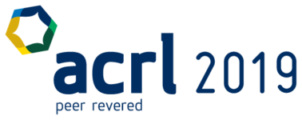Session Description:
Community college librarians regularly participate in outreach and training events to connect with teaching faculty. However, these events are often limited in terms of scope, duration, and level of interactivity. This session details a community college librarys development of online mini-courses for teaching faculty. The session will illustrate how library faculty used an instructional design model to develop and improve two mini-courses intended to speed OER adoption on campus, and it will explain why developing online mini-courses represents a significant professional development opportunity for librarians. Finally, the impact of the mini-courses upon a community college’s OER dialogue will be considered.
